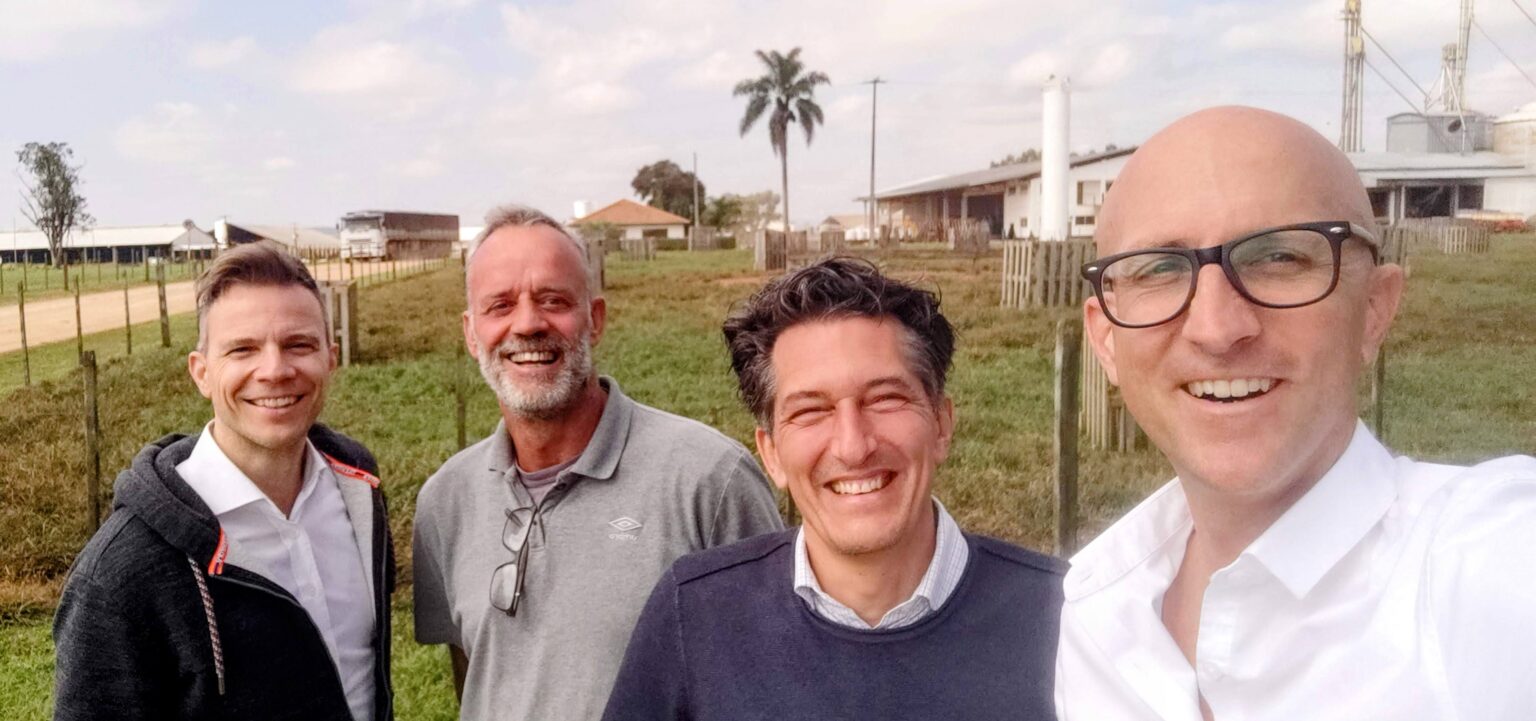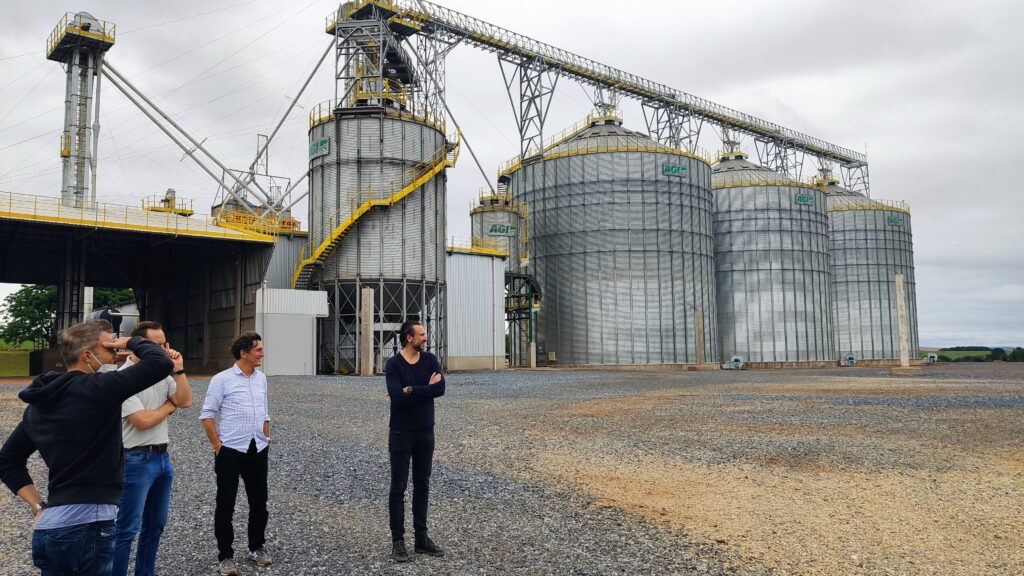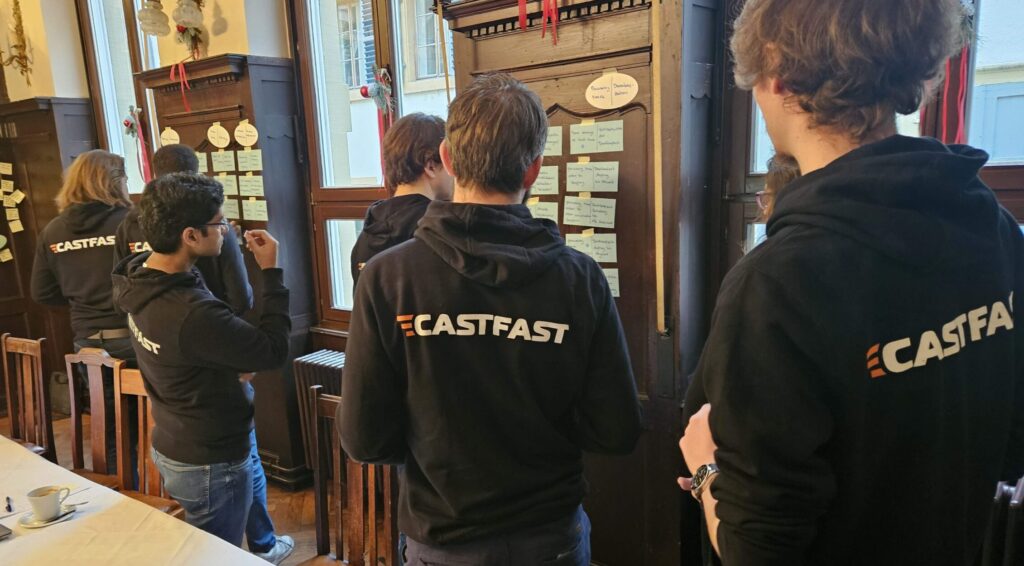


At Eisbach, we’re passionate about the new frontier that has opened up at the intersection of technology and sustainability. After first being truly overwhelmed with the sheer endless opportunities, we have now managed to turn Generative AI (GenAI) into a solid canvas for innovation. Today we have learnings to share in applying AI in peer-to-peer marketplaces, mobility, agriculture, and industrial manufacturing. Our journey with GenAI has been challenging but also very rewarding. Filled with failures, learning curves and triumphs. We now own a growing set of AI powered tools and methodologies to drive meaningful, sustainable growth together with our clients.
Let us share some examples with you:
Comparing the tech stack we used in 2010, when building our first marketplace (mitfahrgelegenheit.com), which attracted millions of users, to the possibilities of Gen AI today, brings tears to my eyes. The challenges of building a successful marketplace have not changed, but the toolset available to entrepreneurs today is (in comparison to 2010) mind blowing. GenAI allows marketplaces to evolve at light speed, offering personalized user experiences through sophisticated algorithms that anticipate user preferences and streamline the connection between buyers and sellers.
There is a lot to learn by visiting an offline marketplace near you – a farmers market or a local trade fair. Observing how successful sellers laser focus their offerings to possible buyers, manage to stand out form the crowd and adapt price and stock to the demand. GenAI in P2P marketplaces is like a skilled artisan in a market, carefully crafting items that meet the specific needs and preferences of each customer. Rather than mass-producing generic items (akin to creating irrelevant SEO-focused articles), this artisan (GenAI) listens to the customers (users), understands their unique tastes and requirements, and provides them with personalized, meaningful, and high-quality content or product recommendations. What took months before can now be learned within days.
In P2P marketplaces, GenAI can analyze vast amounts of data from user interactions, feedback, and preferences to generate insightful, relevant content that enhances user experience. For example, if a user frequently searches for eco-friendly products, GenAI can highlight content and listings that align with sustainability, offering a curated experience that feels personal and thoughtful, rather than bombarding the user with generic, low-quality content.
This approach mirrors Google’s Generative Search, which is being tested in the US. Google’s Generative Search aims to understand the context and intent behind users’ queries, generating responses that are not just accurate but also contextually rich, providing users with information that is genuinely useful and directly related to their search intent. This method ensures that the content is valuable to the user, fostering a more engaging and satisfying experience.
By integrating a similar GenAI-driven approach, P2P marketplaces can offer content that is not only tailored to user preferences but also enriches their decision-making process, whether it’s buying, selling, or exploring new products. This strategic use of GenAI ensures that the platform remains relevant, helpful, and user-centric, avoiding the pitfalls of generating low-quality, irrelevant content. Additionally, AI can automate fraud detection and enhance trust, which is crucial for the success of such platforms.
However GenAI will not be the holy grail to solve marketplaces, because building a successful (P2P) marketplace requires overcoming challenges such as ensuring product-market fit and solving the right problem, highlighting the need for continuous adaptation and innovation. The key is combining AI with expert knowledge, bringing the technology into the hands of a skilled team.

The agricultural sector stands to benefit significantly from GenAI through precision farming, which can optimize resource use and increase yields. GenAI can analyze data from various sources, including satellite images and sensors, to provide farmers with actionable insights on crop health, soil conditions, and environmental factors. This data-driven approach enables more precise planting, watering, and harvesting, leading to increased yields without sacrifying sustainable practices. Moreover, GenAI can facilitate the adoption of high-value crops by predicting market demand and optimizing supply chains, thereby enhancing profitability for farmers. Farmers are under tremendous yield pressure with rising regulatory demands for sustainable practices. AI will play a mayor role to ease that pressure.
GenAI can democratize access to advanced data analytics, eliminating the need for costly software and hardware. Especially crucial in times of rising inflation and climate risk, GenAI can analyze vast amounts of agricultural data—from soil health to weather patterns—to provide actionable insights for farmers, optimizing resource use and crop yields. This application of GenAI empowers farmers to make informed decisions, enhancing productivity and sustainability without significant financial investment. In the past this intelligence was only accessible to large farmers, with AI we will see a democratization of data access and interpretation, empowering small to medium size farmers.
Small farmers often find themselves bogged down by bureaucracy, struggling to set up online platforms for their produce or dealing with minor equipment repairs. Here, GenAI, especially models integrated with voice and vision capabilities, can offer invaluable assistance. For instance, a voice-activated GenAI assistant could guide a farmer through the process of filling out digital forms, setting up an online farm shop, or providing step-by-step instructions for repairing machinery. This level of support not only reduces the administrative and operational burden on farmers but also makes technology more approachable, fostering a more inclusive agricultural ecosystem. We have not met a single farmer in our projects that would rather spend more time on the field and less in the office. AI will allow that to happen.
The success of such transformations often hinges on the mobilization of change agents who can assist farmers in adopting new practices, underscoring the importance of human-AI collaboration in realizing the full potential of these innovations. Drawing from our experiences with AgriFin in Brazil and hektar9 in Germany, we’ve observed a contrast in technology acceptance. German farmers, particularly the older generation, often exhibit a certain sturdiness toward adopting new technologies, whereas Brazilian farmers, along with younger German farmers, tend to be more open-minded. This dichotomy highlights the need for GenAI solutions that cater to diverse levels of digital literacy and openness to innovation. By presenting GenAI in a user-friendly and accessible manner, we can bridge the gap, facilitating a smoother transition for those hesitant to embrace digital tools. AI is the first technology that will full adopt to needs of humans and not require humans to adopt to technology. This will accelerate use and acceptance of AI tools amongst farmers worldwide.

Industrial manufacturing is entering a dynamic new phase with the integration of GenAI, marking a shift towards smart factories. These factories leverage AI for predictive maintenance, quality control, and the customization of production processes. GenAI enables manufacturers to respond more agilely to market demands and customer needs, driving productivity and innovation.
With GenAI, smaller manufacturing entities and individuals gain independence from large OEMs. For instance, with our client CASTFAST, we leveraged GenAI to streamline content creation, SEO, marketing and product development – and maybe soon: (semi-) automated creation and quality control of 3D models. Companies like ZOO pioneer this and will help to democratize manufacturing, allowing smaller players to compete effectively and innovate in their niches.
GenAI can transform industrial SMEs by enabling them to offer customized products without the need for extensive back-office operations. For example, a GenAI system could automate the design process for custom parts, reducing the time and cost involved in production. This not only enhances the manufacturer’s agility but also opens up new market opportunities for personalized products. In a way, the gap between the capabilities of larger and smaller cooperations to drive powerful innovation is shrinking, by applying AI in the process.

Diving into the heart of it, Generative AI (GenAI) isn’t just exciting—it’s revolutionary, especially for sectors like peer-to-peer marketplaces, agriculture, and industrial manufacturing. But really, that’s just the beginning. Every industry stands on the brink of transformation with GenAI, and turning away now means missing out on a future reshaped by innovation.
At Eisbach Partners, we see adopting GenAI as more than just a tech upgrade; it’s a transformative journey that will last and allow for sustainable growth. Our mantra has always been to create sustainable growth for our clients. Now is the time to unlock GenAI’s full potential to foster a future that’s not only more efficient and sustainable but also ripe with opportunities. How can we support you in that journey?
Get in touch with us!